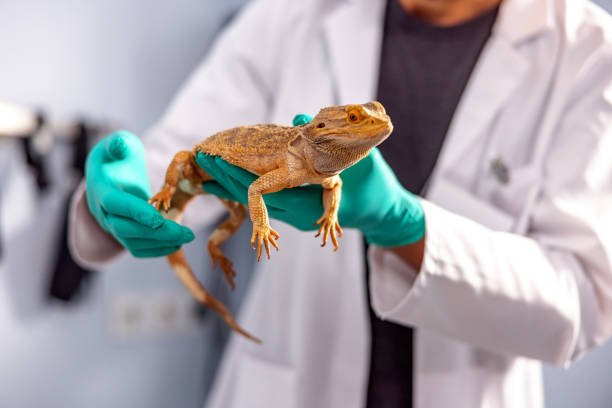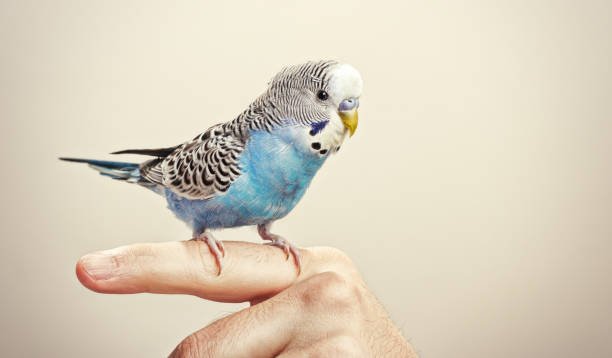Decoding Dog Behavior: Can dogs be autistic?
Can dogs be autistic? For many years, people have been learning more about autism, a complex condition that affects how people think and interact with the world. It brings a mix of challenges and strengths, influencing things like how we communicate, socialize, process sensory information, and engage in repetitive behaviors. But now, as we gain a better understanding of animal minds, a curious question comes up: could animals, like dogs, also experience something similar to autism?

Recent studies suggest a possible link between autism and dogs. While it’s tricky to diagnose neurological conditions in animals, some behaviors in dogs seem similar to the characteristics of human autism. This includes difficulties with understanding social cues and a liking for repeating certain actions. These similarities make us wonder if our faithful four-legged friends might see the world in a unique neurological way.
Let’s explore the idea of dogs having autism. It’s not just a curious question; it’s about understanding our furry friends better. By knowing if dogs can have autism, we can train them in ways that suit their special needs. We want to create happy environments where every dog’s tail can wag with joy. So, let’s investigate together, finding clues and learning to understand our dogs better. Are we ready to figure out the mystery of how dogs think? The leash is in our hands.
An Insight into Typical Dog Behavior
Dogs are our wonderful companions who express their love in various ways. In this exploration of canine behavior, we’ll delve into the delightful aspects of how dogs typically behave and address the question, “Can dogs be autistic?”
Joyful Greetings: When dogs greet you, it’s a moment filled with happiness. Their tails wag, ears flop, and a big smile appear on their faces. Dogs love to connect and have fun whether it’s with people or other dogs.
Family Bonds: Dogs consider their human families as one big family. They relish the moments of cuddling, playing, and going on adventures with the people they love.
Body Language Conversations: Dogs are masters of communication through body language. A jumping and playful puppy indicates happiness, while a comfortably lying down dog signifies relaxation. Understanding a dog’s body language, including the wagging of their tails, helps us comprehend their emotions and needs.
Vocal Expressions: Dogs communicate through a variety of sounds such as barks, whines, growls, and cute yips. Each sound conveys a different message, like a playful bark indicating a desire to play or a low growl serving as a warning. Paying attention to these sounds helps us understand what dogs are trying to communicate.
Playful Pursuits: Dogs absolutely love to play! Whether it’s chasing frisbees, engaging in tug-of-war, or fetching items, these games keep them active, stimulate their brains, and strengthen their bond with their human friends.
Scent Sleuths: Dogs possess an incredible sense of smell, turning a simple walk in the park into a treasure hunt. Every lamppost and tree holds a story waiting to be discovered by their keen noses.
Potential Signs of Canine Autism
Can dogs be autistic? Some studies and stories suggest that dogs might show behaviors similar to autism in humans. Let’s explore the signs and see what our Fido friends might be telling us:
Research Hints:
- Genetic Connections: Studies found possible links between certain genetic mutations in the SHANK3 gene, connected to human autism, and repetitive behaviors in specific dog breeds like Bull Terriers.
- Sensory Sensitivities: Research indicates that some dogs with traits similar to autism may be extra sensitive to sounds, textures, and touch. Loud noises or new places could make them feel anxious or even lead to aggressive behavior.
Behavioral Clues:
- Social Struggles: Sometimes, some dogs act differently than usual. They might not want to play or be around people or other dogs. They may avoid looking at you, not want to be petted, and ignore you when others try to play with them.
- Repetitive Rituals: Some dogs develop repetitive habits, like chasing their tails all the time, spinning in circles, or constantly licking and chewing on things. People and dogs with traits similar to autism might do these things to help themselves feel better when they are anxious or overwhelmed.
- Communication Quirks: Dogs that have these traits might also communicate uniquely. They might bark in unusual patterns, whine more, or find it hard to understand when you tell them to do something. This different way of communicating could be a sign that something is a bit different about them.
A Tail of Two Case Studies:
- Meet Molly, the Quiet Shepherd: Molly is a German Shepherd who doesn’t show much interest in playing or spending time with her human family. She gets scared and hides when there are loud noises, and she likes walking the same routes over and over again. Some experts think Molly might have behaviors similar to autism in humans.
- Introducing Oscar, the Tail Chaser: Oscar is a Bull Terrier who spends a lot of time chasing his tail, sometimes until he gets really tired. He finds it hard to join in regular dog activities and gets overwhelmed in loud places. After a genetic test, it turns out Oscar has a change in the SHANK3 gene, which might be linked to behaviors like autism.
These stories don’t mean the dogs have autism for sure, but they show interesting similarities between how humans and dogs behave. Remember, just seeing these signs doesn’t mean your pet has “canine autism.” It’s important to talk to a vet or an animal behavior expert if you think your furry friend is having behavior challenges.
Debunking Misconceptions
While the jury’s still out on official canine autism, some behaviors suggest furry friends might experience neurodiversity differently. But before we label every shy pup or tail chaser “autistic,” let’s sniff out the truth:
Normal Doggo:
- The shy pup prefers calmness, engages occasionally, and enjoys training.
- Tail chaser loves playful bursts, is not fixated, and has varied interests.
- Grumpy barker expresses excitement, territory, or attention-seeking.
- Dislikes, sensitivities, and quirks are individual, not disruptive.
Potential Autism Signs:
- Minimal social interaction avoids petting and ignores play invites.
- Repetitive behaviors like obsessive tail chasing or licking.
- Unusual barking patterns, and difficulty reading human cues.
- Sensory sensitivities to sounds, textures, or touch.
Remember:
Observe the full picture of behavior, not just one quirk.
Consult a vet or behaviorist if concerned.
Celebrate every unique wag, human, or canine!
Veterinary Perspective
Can dogs be autistic? Experts say there might be something to the waggle. While diagnosing it in humans is hard, in dogs it’s even trickier: no words, just barks and quirks.
Challenges abound:
Dogs can’t tell us their thoughts, leaving us deciphering behavior clues.
Clear-cut criteria? Not so much. It’s a spectrum for both humans and pups.
Subjectivity reigns. Seeing the same wag might vary from vet to vet.
But there’s hope:
Tools like behavior checklists and MRI scans are helping paint a clearer picture.
Treatment plans like positive reinforcement training and sensory management are wagging their tails, too.
Remember:
Consult a vet if your dog’s behavior concerns you.
Celebrate your pup’s unique quirks, autism or not.
Let’s unravel this puzzle together, one happy bark at a time!
Treatment and Care
No diagnosis? No problem! Here’s how to support your pup:
- Predictable Routine: Regular mealtimes, walks, and playtime create a safe, anxiety-free haven.
- Playful Training: Reward good behavior with treats, praise, and fun—short bursts, keep it positive!
- Speak Doggo: Learn their body language and vocalizations to understand their needs and moods.
- Pro Help: Consult a vet and an animal behaviorist for tailored guidance and training plans.
Remember: Be patient, celebrate progress, and shower your furry friend with love. Every wag deserves to be understood.
Conclusion:
Dogs may exhibit neurodiversity! We’ve delved into signs such as social quirks, repetitive behaviors, and sensory sensitivities. While pinpointing a diagnosis of ‘canine autism’ remains challenging, experts are developing tools and treatments to ensure every tail wags with joy.
The future holds promising research avenues – exploring genes, conducting brain scans, and providing tailored support. Remember, each wag narrates a unique story. Let’s embrace neurodiversity, both in humans and canines, and wag together in a world where all companions thrive.
The path to understanding is marked with paw prints. Unleash your curiosity and join the quest to decode the wag! Can dogs be autistic? Let’s explore the intriguing world of canine neurodiversity, recognizing that just like us, our furry friends may have their unique ways of experiencing the world.
Reference and Resources:
For authoritative information on the topic “Can dogs be autistic?”, consider exploring reputable sources such as:
1. American Kennel Club (AKC)
2. The American Veterinary Medical Association (AVMA)
3. PubMed (National Institutes of Health)
5. Canine Journal
6. Wikipedia
7. Flickr
8. Healing paws the science behind pets and mental wellness
9. From stress to happiness the therapeutic effects of pets on mental health























2 replies on “Can dogs be autistic? Signs, Symptoms, and What Every Pet Owner Should Know”
[…] Can dogs be autistic? Signs, Symptoms, and What Every Pet Owner Should Know […]
[…] 22 January 2024 No Comments Why Shih Tzu Are The Worst Dog, Discovering the Best in the ‘Worst’: The Shih Tzu Perspective In the fascinating world of canine companions, different… Read More » […]